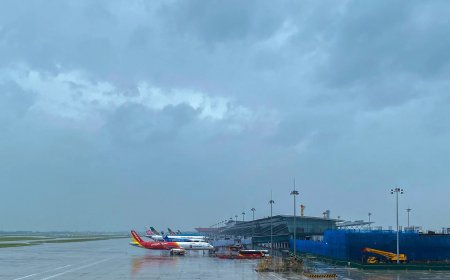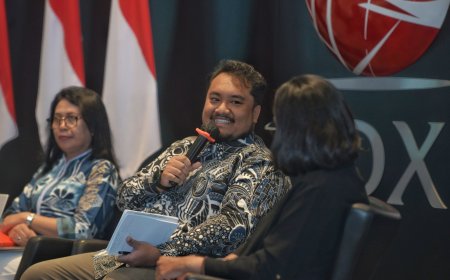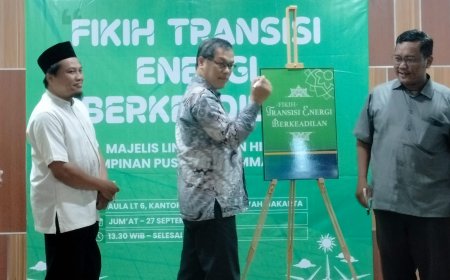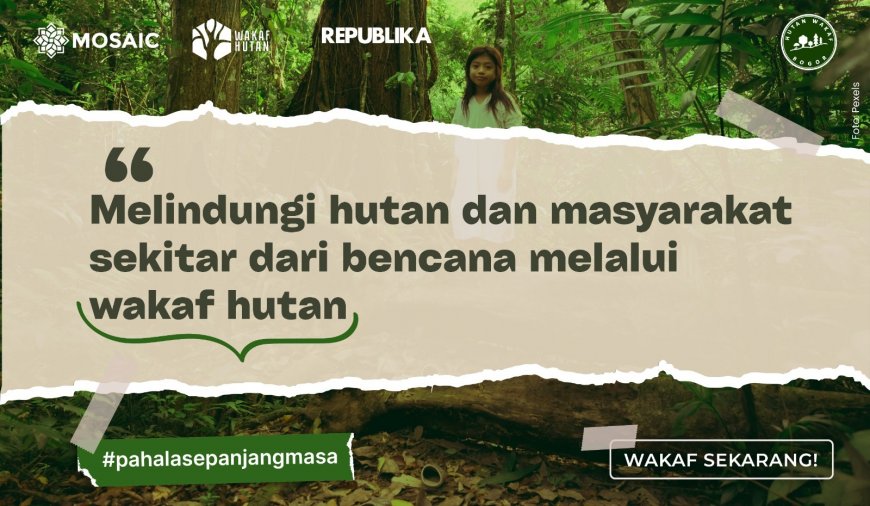Does Climate Can Get Zakat Fund Even Exclude from Eight Asnaf?
One of the resources that can be optimized for climate finance is the religious social fund of the community, namely zakat

The 28th International Climate Summit or Conference of Parties (COP) held in Dubai, United Arab Emirates, has just ended. The conference, which brings together world leaders, seeks to prevent the effects of climate change that are becoming more pronounced in countries ranging from global education to hydrometeorological disaster.
One of the issues raised in COP-28 is the low commitment of developed countries' aid to developing countries' climate finance. The backlog of such disbursements will make it harder for developing countries to meet their climate commitments and potentially exacerbate the problems of climate change and global warming.
The absence of such contributions from developed countries should not be a pretext for our nation to abandon climate change programs. If it is late to act, then disaster will await us. Indonesia, which bears the status of the most generous nation in the world, has a capable philanthropic capacity. These resources are inspired by Islamic values that are embraced by the majority of the country's population.
One of the resources that can be optimized for climate finance is the social and religious funds of the community, namely zakat. Zakat is the practice of washing property that every Muslim is obliged to perform. In the Quran, the commandment of zakat is often juxtaposed with the commandment of prayer. The magnitude of the realization of zakat makes this worship a donor of social funds to an economic driver of the community. The National Amil Zakat Agency (Baznas) noted that in 2022, zakat, infak, alms and other religious social funds reached Rp 22.43 trillion. Of the total collection, zakat mal contributed Rp 3.78 trillion.
When compared to its potential, the realization of zakat is really not enough. The Ministry of Religious Affairs noted that if all Muslims who have reached the nishab (standard of paying zakat) meet their obligations, the collected zakat will reach Rp 327 trillion. The value is almost equal to the government's budget for social protection 2022, which reaches Rp 431.5 trillion.
There are eight groups or asnaf who receive zakat. Fakir, poor, amil (zakat manager), mualaf (one who has recently converted to Islam), riqab (servant of sahaya), gharim (entangled in debt), fi sabilillah (those who fight in the way of Allah), up to ibnu sabil (one who travels for the purpose of obedience then runs out of expenses).
The limited group of zakat recipients makes many zakat amil institutions that channel aid to short-term programs. Humanitarian, health, disaster response and economic empowerment programs dominate the field of zakat distribution. Although the program is important to implement, the use of zakat funds for climate finance will be a long-term solution.
The Secretary General of the Muslim World League (MWL), Muhammad bin Abdul Karim Issa once expressed his opinion on zkat funding to tackle climate change. This he stated in an opinion column on The Star website. “The core idea for all Muslims is zakat, a mandatory charity tax in which 2.5 percent of a person's annual wealth is given to the less fortunate,” Muhammad said, reported by The Star on Monday (Nov. 15).
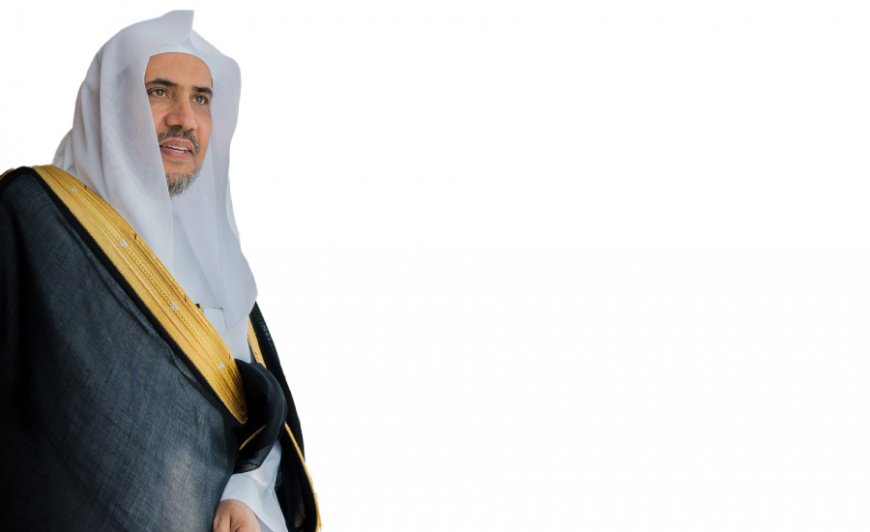
“Zakat generates about one trillion dollars a year enough to help the United Nations meet the 17 Sustainable Development Goals (SDGs). Or more than fifty times the 19 billion dollars COP26 (2021 United Nations Climate Change Conference), which is committed to tackling deforestation,” he wrote.
According to Issa, most zakat funds are used to alleviate poverty in a very direct way in the form of short-term humanitarian assistance. He said, of course, this is important. But it cannot be the answer to the long-term challenge.
“Zakat must meet its broader goal of addressing inequality, the core criterion of zakat distribution. And climate change will undoubtedly be the world's biggest driver of inequality in the years to come,” Isa said.
He continued, the Middle East is already warming at twice the rate of the rest of the world, with much of it at risk of becoming uninhabitable. Such extreme circumstances require zakat to be applied holistically as originally intended, by preventing crises rather than simply caring for disaster survivors. “There is a religious precedent for doing so. After all, addressing inequality of opportunity and eradicating future drivers of poverty are the reasons why zakat is used for educational programs,” he said.
Deputy Secretary of the Fatwa Commission of the Indonesian Ulema Assembly (MUI) KH Abdul Muiz Ali, said that extreme climate change must be prevented even eliminated because it comes in danger or something that could pose a danger. It is contained in the laws of the fiqh, which mentions addararu yuzaalu, whose meaning is: “The danger must be eliminated.” To that end, he argued if governments and communities should be actively involved to realize a good climate.
According to Kiai Muiz, basically the zakat treasure should be distributed to eight groups as described in Quran Surat At Taubah verse 60: That is to say, the zakat is only for the poor, for the poor, for those who are engaged in zakat, for those who are persuaded of their hearts, to liberate slaves, debtors, for the way of Allah and for those who are on their way, as a decree which Allah obliges, and Allah is Knowing, Wise.
Even so, Kiai Ali said scholars allow zakat treasures to be distributed for health and health that threaten communities, such as for climate change programs whose impacts could harm communities if not addressed immediately.
“Some scholars allow the distribution of zakat property for the benefit that is returned to society. Including the health in question is in the interests of safety and health that threaten the public. The possibility of forfeiting the wealth of zakat for the welfare of the people refers to the scope of the meaning of Sabilillah in the Quran Surat At Taubah verse 60,” he said.
According to Kiai Muiz, the majority of scholars define the meaning of sablah in verse 60 of the letter At Taubah as a war volunteer. However, some scholars argue that the word sabilillah in the meaning of the verse can be interpreted as jami'u wujuhil khoir (every good) returned for the good of the people or the community. It is quoted by Imam Abu Bakr Muhammad bin Ali Al-Qaffal Al-Kabir As-Shayyi (291-365 H/904-976 A.D.) as saying that the sabillah covers the entire social sector.
The opinion that sabillah covers the entire social sector was also included in the decision of Munas Alim Ulama NU in Yogyakarta on August 30, 1981 to allow the granting of zakat to mosques, madrasahs, orphanages, social/religious foundations, and so on.

